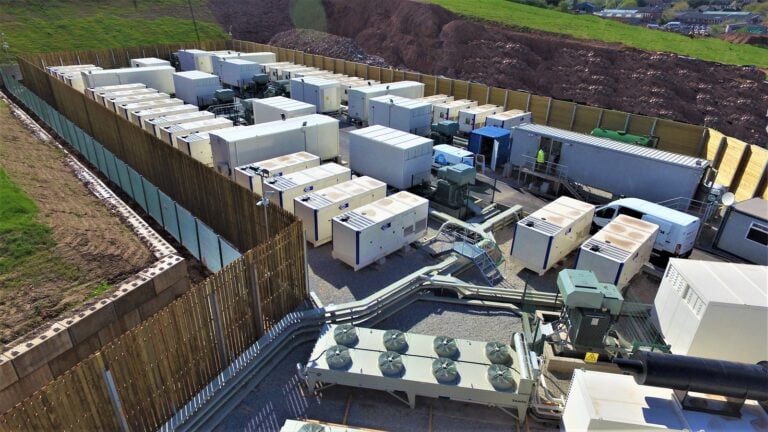
Average revenues for the Gresham House Energy Storage Fund doubled from February to April this year, fund manager Gresham House said in its full year 2023 results.
Gresham House Energy Storage Fund plc, listed in London under the GRID ticker, owns and operates battery energy storage system (BESS) projects in the UK and released its full-year results this week (29 April).
The company confirmed 2023’s ‘weak revenue environment’ with a 38% fall in revenues to £38.7 million (US$48 million), a 47% fall in EBITDA and the fund swung to a £110 million loss from a £217 million profit the prior year. Net Asset Value (NAV) per share fell 17% to 129.07p.
GRID had 690MW/788MWh operational by the end of 2023, a roughly 17% market share based on the 4GW/4.9GWh of grid-scale BESS online according to Solar Media Market Research figures.
Try Premium for just $1
- Full premium access for the first month at only $1
- Converts to an annual rate after 30 days unless cancelled
- Cancel anytime during the trial period
Premium Benefits
- Expert industry analysis and interviews
- Digital access to PV Tech Power journal
- Exclusive event discounts
Or get the full Premium subscription right away
Or continue reading this article for free
The main reason revenues fell for GRID and all other UK BESS owners and operators in 2023 is because of falling prices in the ancillary service markets.
However, 2024 has marked a recovery from this as shown in a trading update a few days before its full-year results. Average revenues for its operational BESS went from £39,500/MW/year in February 2024 to £77,900/MW/year for the first half of April 2024, a nearly 100% increase.
It has also grown its operational portfolio to 740MW/876MWh with the energisation of the 50MW York project while two more similarly sized ones are coming online ‘imminently’, it said.
Revenues have improved thanks to the launch of a new ancillary service, the Balancing Reserve (BR), transmission system operator (TSO) National Grid ESO increasing the use of BESS in the Balancing Market (BM) and improvements in wholesale market energy trading opportunities.
The latter two are energy-intensive activities and their increase ties into a wider trend of moving away from mainly getting revenues from power-intensive activities like ancillary services. Capacity Market (CM) and energy trading revenues went from 18% of the total in 2022 to 46% of the total in 2023 for GRID.
GRID is set to reach over 1GW of operational capacity by the end of 2024, and its average duration will move from 1.2 hours to 1.6 hours as part of that move towards more energy-intensive activity. GRID has 23 operational BESS projects ranging from the 5MW/8MWh Wolves project, its smallest, to the 50MW/100MWh Grendon 1 project, its largest.
Last year, it announced plans to invest in solar-and-storage projects in California, US, but the company has since deferred these plans and its project there, called Iliad, no longer appears in its pipeline.





